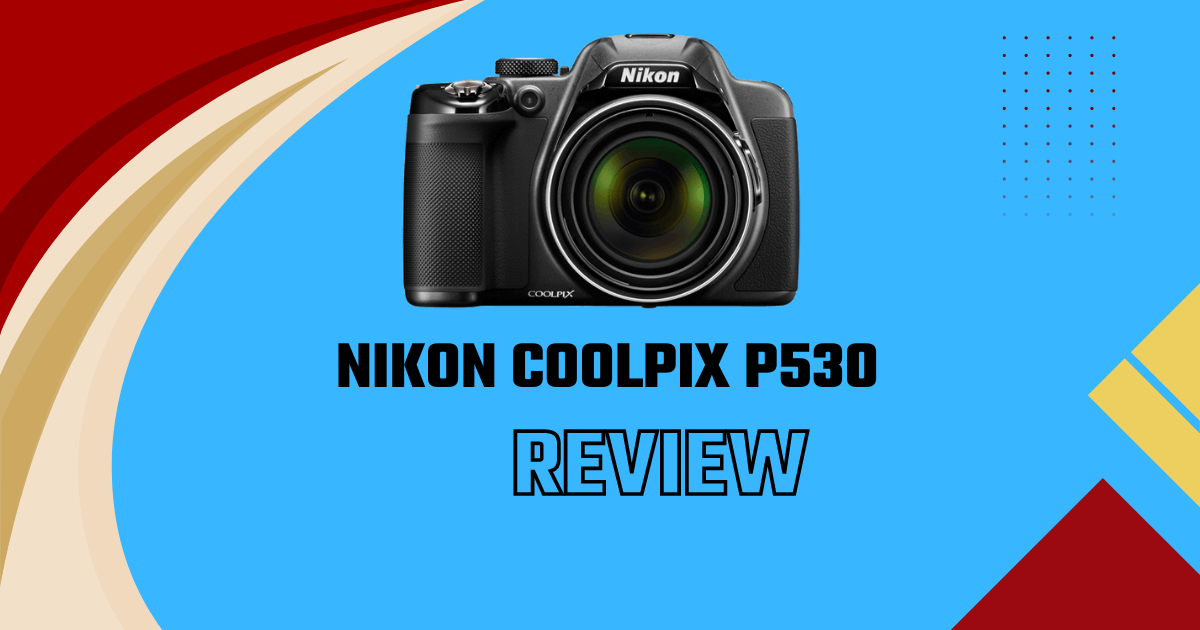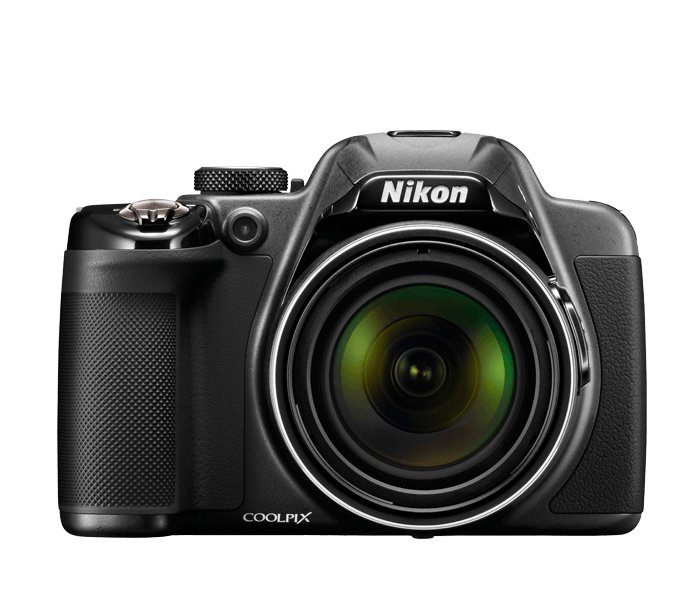
The Nikon COOLPIX P530 is a super-zoom camera with a 42x territory stretching out from a 24mm wide-point to 1000mm super-fax. It has a 16 Megapixel CMOS sensor and offers full PASM exposure control notwithstanding full auto.
Exploring the Power of Nikon Coolpix P530: A Review
The COOLPIX P530 is an update to the well-known P520 released in a little more than a year. It’s presently the third era to utilize the 4.3-180mm f3-5.9 focal point albeit curiously Nikon has decreased the sensor resolution by 2 Megapixels, down from the 18.1 Megapixels of the P520. The screen is likewise not generally expressed and the more established model’s underlying GPS has been dropped.
Key Features:
- 16-megapixel back-enlightened CMOS sensor
- 42x optical long-range focal point (35mm equiv: 24-1000mm)
- 3.0-inch 921k dot LCD screen
- Full 1080p HD film recording with sound system sound
- ISO 100 – 6400
- 0.2-inch 201k dot electronic viewfinder
- Progressed focal point shift VR
- 1cm least focusing distance
- Auto HDR mode
- Simple Panorama 360°/180°
- 7fps consistent shooting
Nikon COOLPIX P530 Design and Controls
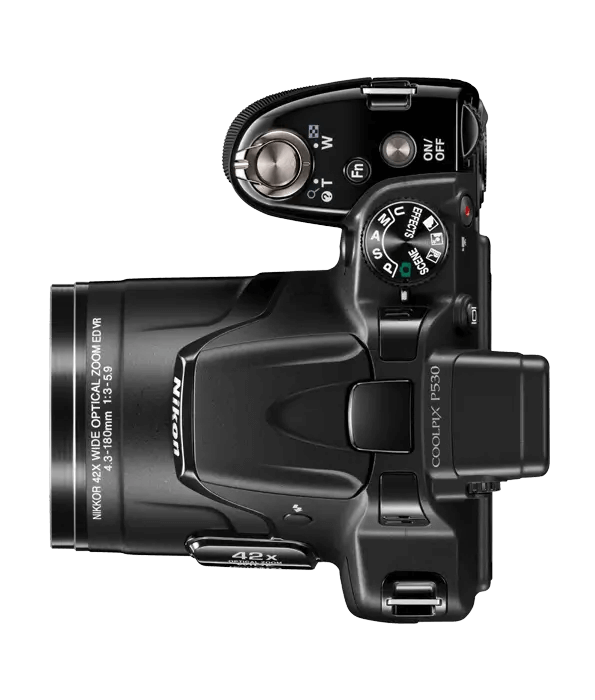
The Nikon COOLPIX P530 resembles the P520 it replaces. It’s compact for a 42x super-zoom and truth be told is somewhat more modest than its ancestor and around 50g lighter. However, the plan, directly down to the number and situation of the controls is pretty much indistinguishable.
On paper, the COOLPIX P530 is greater all around and somewhat heavier than the Canon SX520 HS, not a distinction you’re probably going to see or care about to the point of justifying picking one over the other. Remember that the P530 figures out how to pack an electronic viewfinder into that space and you have a distinction worth observing. The Sony H400 is nearly massive, however, it has a whacking 63.3x zoom.
The Nikon COOLPIX P530’s design could be portrayed as squarish, it misses the mark on the natural magnificence of the H400 and SX520 HS, no difference, either way, it’s a truly agreeable fit in the hand. It has an elastic-like covering on the grasp however the thumb cushion is dimpled plastic which feels a piece modest; both the H400 and SX520 HS utilize a similar material on the thumb cushion as the hold.
Like the SX520 HS, the P530 has a subsequent control wheel, yet it’s all the more reasonably situated for thumb activity so you can make exposure changes without taking your finger off the screen button – as you have to do with the SX520 HS top-mounted dial.
The on/off switch is situated on the top board and has a green LED encompass to let you know when the power is on. The main other button on the top is a programmable fn button which is doled out to drive modes as a matter of course. By contrast, the drive mode button on the Canon SX520 HS can’t be re-doled out although, given the SX520’s awful 1.7fps ceaseless shooting execution, all there are reasons it ought to be.
Round the back, the button format is unaltered from the P520 with a control wheel flanked by playback, menu, and erase buttons. The film record button is at the highest point of the backboard right close to the thumb dial. The main truly huge plan contrast between the Nikon COOLPIX P530 and its ancestor is that the previous model’s 3.2 inches side-pivoted go-crazy screen has been supplanted with a somewhat more modest 3-inch board that does not expressive anymore.
That is a disgrace, yet it takes into account a lighter more compact body. If you need a COOLPIX super-zoom with a flip-out screen you’ll need to climb to the lead 60x P600, on the other hand, the spending plan 34x L830 has a flip-up screen, or search out the more seasoned P520.
I ought to likewise call attention to that both the Sony H400 and Canon SX520 HS have fixed 3-inch screens with 460k dot resolution. The Nikon COOLPIX P530’s screen is a higher resolution 921k dot board which delivers a more point-by-point stable picture. It additionally has a more extensive point of view than both the other two models. The viewpoint on the Sony H400 isn’t incredible either on a level plane or in an upward direction, the SX520 HS has a wide flat point of view, yet just the COOLPIX P520 screen stays apparent at intense even and vertical points of view, so it’s extraordinary for upward shots, however, obviously not generally so flexible as a verbalized screen.
The SX520 HS screen was awesome for review in brilliant light outside, yet it doesn’t enjoy the benefit of an electronic viewfinder like the Nikon COOLPIX P530. The 0.2in 201k spot board is, by the present guidelines, an extremely fundamental EVF however it gives a sufficiently respectable view and is the most ideal choice for shooting outside and for when you’re zoomed in to the more drawn-out central lengths. It can get a piece tiring on the eyes inevitably, yet it’s most certainly something beyond a backup choice. The details for the Sony H400’s EVF are something very similar, when I looked at them, the COOLPIX P530’s EVF was essentially greater and somewhat more brilliant.
The COOLPIX P530’s underlying flash is sprung up by squeezing a button on the left half of the body just underneath the glimmer head. When raised you can browse standard, red-eye decrease, and back drapery sync modes. The reach is 8 meters at the wide point setting. Like the Canon SX520 HS and Sony H400, the Nikon COOLPIX P530 comes up short on the hot shoe; the SX520 HS is the only one of the three that offers an outside streak unit adornment.
A fold on the right of the P530’s body gives admittance to the consolidated USB/A/V out port and a small HDMI port. The joined battery and card compartment are in the foundation of the grasp. Like the H400, the COOLPIX P530 battery is charged in the camera utilizing either the provided USB charger or you can plug it into a PC or other reasonable charger utilizing a standard USB link. With everything taken into account, it’s considerably more helpful than hauling around an exclusive charger.
Nikon COOLPIX P530 Lens and Adjustment
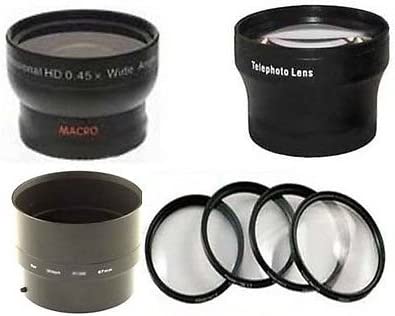
The Nikon COOLPIX P530’s 4.3-180mm f3-5.9 zoom is a similar focal point utilized in two past ages of COOLPIX P models back to the P510 when it was a market chief. However, it’s as of now not the longest long-range focal point in this cost section it covers a truckload of ground from a super-wide point to a telephoto that will get you close to remote activity.
The PowerShot SX520 HS has a comparable reach, practically speaking there’s no huge distinction between the 1008mm greatest zoom on the SX520 HS and the 1000mm of the P530. The Sony H400 is an alternate matter, as while its 24.5mm wide point is everything except equivalent to 24mm, at the opposite finish of the reach the H400’s 1550mm fax will draw you that much nearer to the activity. To give you a thought about how much nearer, notwithstanding the standard wide point and fax inclusion tests in the table underneath I’ve additionally shown how the greatest 1000mm fax of the COOLPIX P530 contrasts and 1550mm on the Sony H400.
With zoom ranges turning out to be ever longer, adjustment takes on an increasingly more significant job. The COOLPIX P530 utilizes optical adjustment, moving the focal point components to make up for camera development; Nikon calls it vibration reduction. There are three settings accessible from the P530’s menu, Off, Normal and Active. Dynamic mode figures out unreasonable wobbling, instances of the sorts of conditions it very well may be valuable in, as per the manual, are ‘while shooting from a vehicle or under unfortunate traction conditions’.
Commonly, this sort of extra adjustment is saved for film shooting and it’s somewhat odd to give two degrees of adjustment to stills shooting, if there’s a more viable choice, why not simply incorporate that and disregard the less viable one? One potential explanation is that Active mode consumes fundamentally more power or utilizes some extra advanced pay that could somewhat debase the quality. In my tests with the previous P520, I acquired no benefit over Normal mode while shooting the test scene in Active mode, yet that doesn’t mean it couldn’t yield a better outcome in circumstances like those referenced in the manual.
To test the Normal mode adjustment on the new COOLPIX P530, I zoomed it to its most extreme 1000mm fax central length and put forth it to Shutter boundary mode. I made a grouping of efforts with the adjustment switched off at dynamically more slow screen speeds. I rehashed the arrangement with the adjustment in Normal mode. In Normal mode, the Nikon COOLPIX P530 can shoot hand-held at a great five stops slower than the photographic artist’s guideline says is prudent.
In addition to vibration reduction, the COOLPIX P530 likewise incorporates Motion identification including normal on most Nikon compacts which raises the screen speed and additionally ISO responsiveness in Auto and some scene modes to stay away from shade speeds that are probably going to bring about camera shake.
Nikon Coolpix P530 Performance
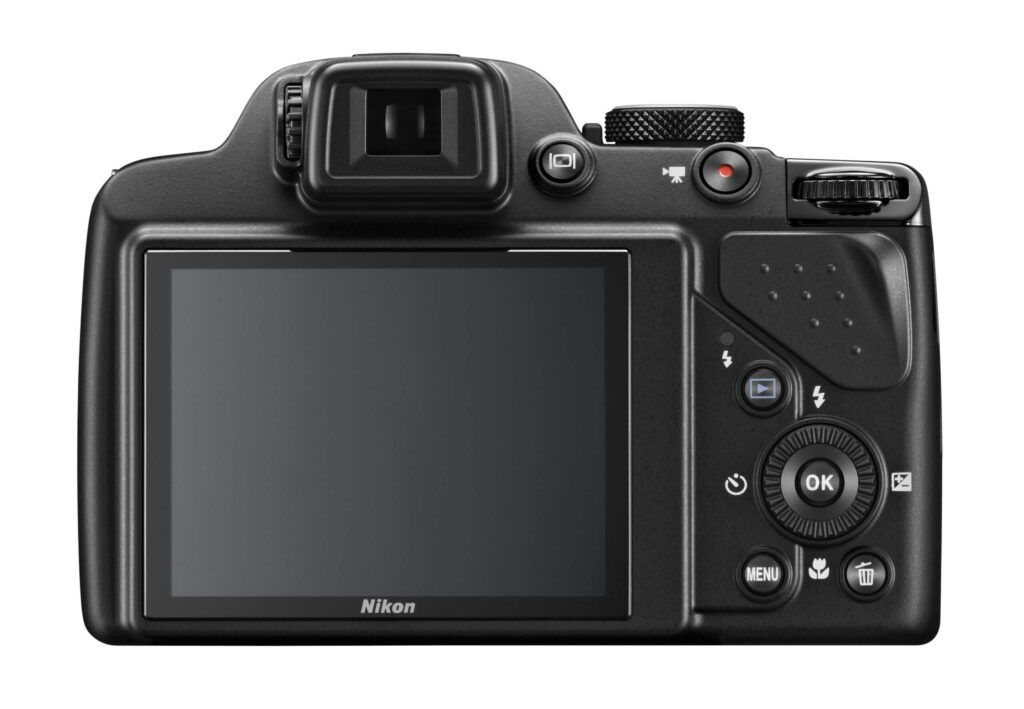
As referenced before, the strong design of the camera assisted me with shooting handheld at long central lengths. Yet, all things considered, the greatest disadvantage of this camera is its sluggish auto-focus speed and shutter lag. Top-of-the-line mobile cameras can without much of a stretch rival this camera, taking everything into account.
This camera appeared to catch the subtleties well in low responsiveness and great light circumstances. Contrasted with its ancestor P520, this camera has a 16 MP resolution. Accordingly, when I zoomed in 100 percent on a picture taken in full zoom, it looked smooth. Unless you need to print at sizes bigger than 24″ on the long side, print quality ought to be very adequate.
ISO goes from 8-3200 and commotion is all around controlled. To test the camera’s low light awareness, I shot some photographs at my companion’s wedding at 3200 ISO.
While it took upwards of 30 seconds to precisely lock focus, it might be said that the pictures created were very sharp, particularly with its focal point being outfitted with Nikon’s VR (Vibration Reduction) innovation.
The camera’s legitimacy is likely in the way that it permits full manual control. In this way, if you are a semi-ace picture taker, you can try different things with openings for much better pictures. The camera doesn’t uphold RAW configuration, so you probably won’t have a lot of opportunities to play around with your pictures.
The camera’s 24-1000mm territory in 35mm equivalent, allowed me to pick a wide assortment of subjects, which makes it very great for ordinary shooting.
Macro focusing is the other great piece of this camera. I truly loved the amazing way sharpening the pictures which I took the camera near my subject and initiated macro focusing. The completely energized battery offered me nearly 300 chances to take on the manual mode without a streak.
Nikon COOLPIX P530 Shooting Modes
The COOLPIX P530 can be utilized simply to use in Auto mode. This is an outdated auto mode with no scene location to recognize illuminated or moving subjects, for that you want Scene Auto selector mode, which utilizes Scene identification to naturally pick the most ideal scene mode for the subject from one of ten scene options.
Change to the PASM modes and both the Command dial thumb haggles selector wheel is utilized to change the proper openness control; the order dial connects with program shift in Program auto (Canon observe – the SX520 HS doesn’t do this) and the screen speed in Shutter need and Manual modes. The multi-selector wheel is assigned to the opening in Aperture need and Manual modes.
The COOLPIX P530 has 16 physically chosen scene modes including every one of the standard suspects from Portrait to Party through Landscape, Beach, Sports, Fireworks, Sunset, and Backlighting. There are two display modes for shooting 180 and 360 perspectives. Both work similarly to Sweep Panorama on the Sony H400 – you press the shutter once and pan the camera as easily as you can. You can pan with the camera in representation or scene direction – the P530 works out, and you don’t have to tell it ahead of time as you do on the H400. Picture mode creates the biggest pictures which are 1536 x 4800 pixels for 180 displays and the 360 ones measure 1536 x 9600.
While it isn’t one of the most outstanding HDR modes around, the COOLPIX P530 holds its Backlighting scene mode. It’s not generally remembered for the mode dial, however, you need to choose it from the Scene mode menu. HDR mode discharges a quick eruption of organized shoots and produces a composite HDR picture from them. Three levels are accessible and I’ve shown models in the table underneath. HDR mode sets the awareness naturally, for this situation to 800 ISO so I’ve likewise added my 800 ISO noise test and went for an examination.
Indeed, even Level one exaggerates the shadow tone planning a little, bringing about a level-looking picture, however, it’s great to see Nikon giving HDR on the COOLPIX P530, especially as it’s something impossible on the SX520 HS or H400. There’s another stacking mode, Night Landscape which joins an eruption of five shots taken at a high ISO aversion to delivering a low clamor composite.
Nikon Coolpix P530 Picture Quality

The unavoidable issue here is whether the P530’s drop-in sensor resolution has given picture quality a lift. Well luckily it appears to have gotten the job done, concerning what’s as yet a little 1/2.3-inch sensor, it delivers a few extremely decent shots. Fine detail is all around held and pictures can look astonishingly sharp. Indeed, even scene scenes where grasses and foliage are frequently inclined to seem spread and painterly when caught on also little sensors come out looking fresh and reasonable.
Nikon’s capacity to deliver heavenly optics is again demonstrated with the 42x focal point on the P530. Notwithstanding the colossal central length range, there’s no noticeable barrel or pincushion twisting and sharpness is astounding across the whole casing. Chromatic variation (purple bordering in high difference regions) is additionally very much controlled and seldom noticeable. The camera’s Vibration Reduction framework works a treat as well, settling shots taken at the outrageous telephoto end of the zoom range which would somehow or another be difficult to hold consistently.
The P530’s exposure metering produces splendid, adjusted exposure with lively, punchy shading multiplication. Some feature detail can be a victory because of the genuinely normal powerful reach, and although initiating Nikon’s Active D-Lighting highlight paws back a few feature and shadow detail, it’s no supernatural occurrence fix. To truly increment dynamic reach, you’re in an ideal situation changing to the camera’s Backlighting scene mode, by which two shots of contrasting openings are caught and linked into one picture with much further developed shadow and feature definition.
The P530 additionally intrigues low light and at higher sensor responsive qualities. Of course, grain is noticeable even at low ISO settings if you pixel-peep, yet this is unavoidable with any little sensor camera so it ought not to be a reason to worry. What’s more significant is the way well the P530 controls this commotion. Just at ISO 800 grains begin to turn out to be more articulated, yet it’s in no way, shape, or form diverting. Indeed, even ISO 1600 shots endure the critical tests and it’s just at ISO 3200 where picture commotion truly gets ugly.
All things considered, we’ve seen far more terrible at this responsiveness setting from different cameras with also estimated sensors. Nonetheless, the greatest ISO 6400 is best left if all else fails, such as the elevated degree of grain and noticeable shading dotting. However, all things considered, a great performance.
Some might regret the shortfall of crude catch in a scaffold camera, for example, but the P530’s good picture quality is in an enormous part down to cunning JPEG picture handling. Strip this away to shoot crude records and the outcomes won’t look close to as engaging as they do from a bigger sensor camera like a DSLR. You’d need to invest genuine after-creation energy to reestablish them to the JPEG quality consequently yielded by the P530.
Nikon COOLPIX P530 Film Modes
The COOLPIX P530 has the best quality HD film method of 1080p25 which is encoded at a normal piece pace of around 17Mbps. All of the video modes are accessible in PAL and NTSC viable casing rates (for example 25/30 and 50/60fps) contingent upon the Video mode setting in the Setup menu, from here on I’ll utilize the PAL particulars. Next on the menu is a joined 1080i50 mode, trailed by 720p25. That is trailed by one more 720p mode saved in Apple’s alter agreeable iFrame design and in conclusion, a VGA mode that records 640×480 resolution video at 25fps (or 30fps for NTSC video mode).
That is only the typical speed mode; the COOLPIX P520 likewise has a few HS options for playback at speeds other than constant. HS480/4x shoots 640×480 video at 4x ordinary speed (100 or 120fps relying upon whether you have PAL or NTSC video mode chosen) which plays back at quarter speed. HS720/2x records 1280×720 at twofold the ordinary edge rate for half-speed playback, and lastly 1080/0.5x records full HD video at a large portion of the typical edge rate for twofold speed playback.
Sound isn’t recorded with the HS video modes however I was charmingly astounded to find that you can utilize the impacts channels. The main constraint on this is that the Soft and Nostalgic sepia impacts are just accessible with the HS720/2x mode. I ought to likewise refer to that you can’t utilize the utilization zoom or Full-time AF with the HS modes. No matter what, this is a noteworthy scope of fast recording modes and one of the COOLPIX P530’s enormous benefits over the H400 and SX520 HS neither of which offers anything like it.
The COOLPIX P530 doesn’t have a movie position on the mode dial, so the recording is begun by pressing the committed record button or anything that mode you’re in. One of the downsides of this approach is that you can’t build out your shot effectively as the screen changes from 4:3 extents to 16:9 (accepting at least for now that you’re shooting in one of the HD modes). In any case, there is a most un-a-presentation mode that superimposes the 16:9 region on the 4:3 screen for you.
The COOLPIX P530 gives two self-adjust modes to film shooting, Single (AF-S), which sets the concentration toward the start of your clasp, and Full time (AF-F) which ceaselessly changes it. AF-S is the default, however, if you need to record whatever’s moving, or then again if you’re panning the camera from close to far subjects, you want to change to Full-time AF. The Full-time AF mode is somewhat sporadic.
The COOLPIX P530 doesn’t uphold any of the PASM exposure modes for film shooting, no matter what the place of the mode dial and ISO, the responsiveness and openness are set consequently. In that regard, it’s equivalent to the SX520 HS and H400, neither of which offers manual exposure control for films.
Nikon COOLPIX P530 Handling
The COOLPIX P530 fires up decently quickly and is prepared to require a shot in a little under two seconds. That is normal as it’s quicker than the Sony H400 yet slower than the SX520 HS. For shooting in manual and self-loader modes it has the best control format of each one of the three models tried. The SX520 HS additionally has a second dial notwithstanding the four-way regulator, however, its position makes it important to get your finger off the shutter release.
It’s likewise answerable for both gap and shade speed so in the manual you need to press the exposure compensation button to flip between them. The COOLPIX P530 utilizes two its order dial and the multi-selector wheel for much better impact.
The P530 likewise offers relatively great customization choices with a programmable Fn button that can be relegated to any of various capacities including ISO awareness, white equilibrium, picture size and quality, Picture control, metering, AF region mode, and ceaseless shooting. Talking about which, the COOLPIX P530 has a good 7fps full resolution 7-outline burst mode as well as an abundance of diminished resolution options.
There are 1920×1080 60fps and 640×480 120fps modes as well as Best Shot Selector, which picks the absolute best from a 10 casing burst, and Multi-shot 16 which shoots 16 edges and consolidates them into a single picture estimating 2560×1920 pixels.
Like the SX520 HS, the P530 gives essential 3-outline auto openness organizing with up to +/ – 1EV in 1/3EV spans. It likewise has an essential stretch clock which can be set to 30 seconds and spans from 30 seconds to an hour. There’s no restriction on the number of shots, the P520 continues onward until you press the screen discharge, the battery runs out, or the card is full. It’s a disgrace Nikon couldn’t give a more limited stretch between shots than 30 seconds, however, it’s an extraordinary additional mode to have no difference either way.
The P530 rushes to shine in great light and at wide point central lengths, however when completely zoomed in it can turn out to be to some degree comfortable. There are four AF region modes, Face need, Manual (spot, typical and wide), Subject following, and Target tracking down AF. In the manual modes, the single region can be moved around the focal screen region to one of 99 positions.
Nikon COOLPIX P530 Sensor
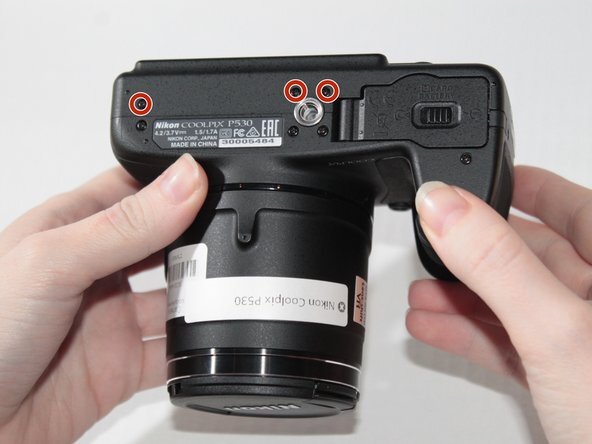
The COOLPIX P530 has a 16.1 Megapixel sensor that produces pictures with a most extreme size of 4608×3456 pixels. Photographs are saved at one of two JPEG quality settings and Large Fine JPEGs are on normally 5.5 to 6.5MB in size. The ISO responsiveness range is 100 to 6400 ISO and the screen speed range is 1/4000 to 15s.
Pros of Nikon Coolpix P530:
- Optical Image Stabilization
- Electronic viewfinder
- 120fps High-Speed Video
- Panorama Shooting
- Manual Exposure
- Face Detection Focusing
- 921k dots LCD Resolution
Cons of Nikon Coolpix P530:
- Unresponsive menu
- No External Flash Shoe
- No RAW Shooting
FAQs
Does the Nikon Coolpix P530 have Wi-Fi?
The camera offers Wi-Fi availability via Nikon’s discretionary WU-1a Wireless Mobile Adapter.
Is the Nikon Coolpix P530 a DSLR camera?
The P530 is focused on the sharp photographic artist and gets a DSLR-like mode dial to effectively choose aperture and shutter modes, as well as a full manual option.
How do I know if my Nikon Coolpix P530 is charging?
When you press the shutter release button right down, the flash fires. This is the way you will know that the Nikon Coolpix P530 is charging.
Can Nikon Coolpix take a video?
The Nikon Coolpix is very easy to use. You can take outstanding photos and videos with this camera.
How can I charge my Nikon Coolpix camera without the charger?
There is a great source of power named ‘Power Bank’ for a Camera like Nikon which you can utilize once you are out of charge. You can find these power banks online and in markets, however, their costs differ.
Can I charge my Nikon camera with a USB?
Yes definitely. You can connect your camera to a USB power source, and it will start charging the battery.
Final Words
The Coolpix P530 is a feasible decision for beginners and devotees who don’t joke around about photography, yet are reluctant to introduce to the staggering body and lens options in DSLR markets.
All things considered, the Nikon Coolpix P530, with its superzoom focal point, and low light execution, is a decent wagered for fans who are hoping to analyze without feeling restricted by the optical or technical capacities of their stuff.
